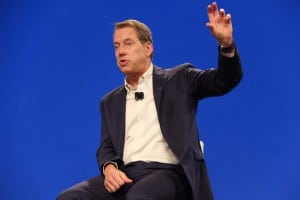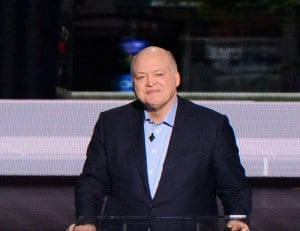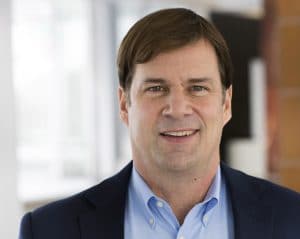
Bill Ford Jr. told shareholders that the company won’t know the full impact of the pandemic for some time.
The fallout from pandemic created by COVID-19 will weigh heavily on Ford Motor Co.’s results for the second quarter but the company is moving forward with plans that will put the company on much stronger footing in the future, Ford executives told stockholders during the company’s virtual annual meeting of shareholders.
Ford executives also said they had no specific timetable for restoring the company’s dividend, which has been suspended in the face of the financial squeeze created by the pandemic, or exactly when Ford would be able to resume full production in North America, which accounts for the lion’s share of the company’s revenue and profits.
“The full impact of the pandemic has yet to be felt,” noted Ford Executive Chairman William Clay Ford Jr. during his remarks to shareholders, noting the crisis has hit the auto industry all across the globe.
(Coronavirus crushes Ford, resulting in Q1 net loss of $2 billion.)
However, he also emphasized the company is moving forward on many fronts, including implanting new procedures and protocols to protect employees, while pushing ahead with a product plan aimed at replacing the company’s key vehicles.

Ford CEO Jim Hackett says Ford the company has solved many of the problems that hobbled the company recently.
Ford also plans to remain at the forefront of the drive to electrification with the introduction of vehicles as the all-electric Mustang Mach-E and a hybrid version of the Ford F-150 pickup truck – the company’s signature vehicle – and through its alliances with companies such as Volkswagen and Rivian.
(Learn more about what’s included in a truck warranty plan.)
“We’re not only preparing the company for a world of zero emissions,” Ford said. “We’re also helping build a better world,” he added.
Ford CEO Jim Hackett also said that the company has moved to correct problems that have hobbled the company in recent months.
The system that produced the defective transmissions used in the Ford Focus and Ford Fiesta that led to huge warranty costs and hurt the company’s reputation with consumers has been completely overhauled at this point, said Hackett. Ford made a serious mistake when it farmed out the engineering work on the transmission to various units “to even out the workload,” he said.
(Ford COO Farley shuffles executives to accelerate improvement.)
The results were a disaster and won’t be repeated under the new system the company has now installed.
In addition, the effort to run “virtual pilots” prior to the introduction of new Ford Explorer and Lincoln Aviator also didn’t work, Hackett said, and had to be discarded.
The disclosure of the warranty problem with the transmission and the difficulties surrounding the launches of the new Explorer and Aviator had a significant impact on the value of Ford stock, which lost a substantial portion of its value.
Jim Farley, Ford’s new chief operating officer, however, noted that Ford had put the problems behind it. The company was on track to exceed its earlier guidance before the pandemic forced the company to shutdown in the middle of March, Farley said.
The company has a very good plan for the future, and they will be its performance in executing the plan, he said.
(Ford family member named to Rivian board.)
Tim Stone, Ford’s chief financial officer, also said the company is taking very step it can to conserve cash and trim costs, while protecting its production plan. Capital spending has been cut but Ford will still spend roughly $6.5 billion on capital projects this year even after cutting $500 million from the budget in response to the pandemic.

